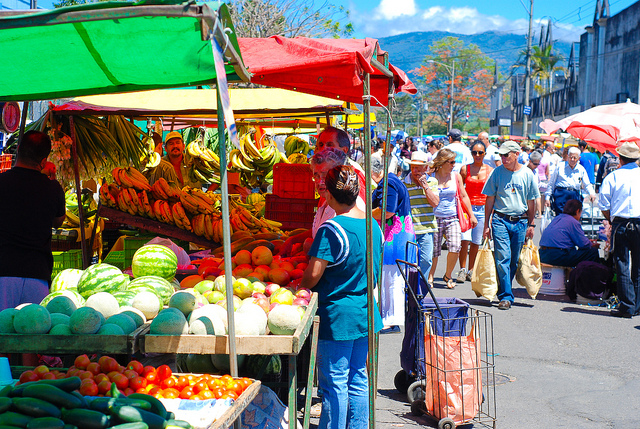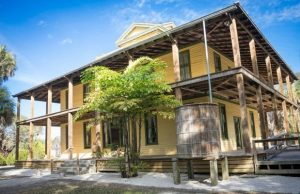How Expats Can Avoid Paying the New Person Tax
Becoming an expat, living abroad and immersing yourself in a new way of life can be an exciting proposition. However, there can be some unpleasant shocks to being new in a foreign country, namely unexpected or higher costs for things that you hadn’t expected or budgeted for.
These increased expenses for the unwary or uninformed expat can have not only financial but also a profound emotional impact. Understanding the development cycle and educating oneself on how the locals spend and shop, can reduce this cultural sticker shock and ease your transition into the tropical lifestyle you had dreamed of.

Jasperdo
What the New Person Tax Is
The new person tax can be thought of as having two parts. The first part consists of those expenses that are necessary to establishing yourself as an expat in your new country. The second part is those prices that expats pay for goods and services that are higher than the local population.
While neither part is a “tax” in the true sense of the word, the unwelcome and unexpected costs of your new lifestyle can feel just as burdensome as a levy from a taxing authority. Here are some examples that illustrate what a “new person tax” is:
Moving Your Personal Property to Your Tropical Escape
Perhaps one of the biggest shocks many expats receive is when they discover just how much it will cost to bring their furniture, clothes, electronics, etc. into their new country. Each country has different rules regarding the dollar amount that can be imported by foreigners without having to pay taxes, or customs duties.
This is particularly important if you are considering bringing a vehicle into the country; registration, insurance, and licensing fees all run up the dollar amount that having your own personal transportation could cost.
An even bigger surprise comes when trying to find companies that will ship to your destination and how much it will cost. Factor in the time it may take to actually receive your belongings (and the costs that you may incur if you need to buy essentials to use while waiting) and the cost may stagger those who weren’t expecting it.
Real Estate Can Mean Real Costs
While many countries have very favorable laws governing land ownership by foreigners, the expenses involved in a purchase can go well beyond the purchase price. Retaining an attorney, paying for title searches, having documents translated, registration at the correct authority, transfer taxes (if applicable), and, of course, commissions, should all be considered as related costs.
Trying to actually learn what the purchase price of a parcel of land or a home is can be another money trap. Latin American countries do not have an MLS system and, as a result, properties can be advertised by multiple agents, at different prices, at the same time. It is not uncommon to find the higher prices listed on “gringo friendly” websites than on those favored by local residents.
Paying for utilities can also have unexpected financial consequences. Utility companies in paradise will often charge for service calls even if it turns out that the service can’t be installed or repaired. Simply put, expecting the same type of relationships with providers of electricity, water, cable, and internet that you would find in the U.S. (and at the same prices) is just not realistic.
Shopping Can Be a Challenge
Even the simple tasks of food or clothes shopping may eat unexpected holes in the budget. North Americans are often perceived as having endlessly deep pockets, so it is not uncommon for expats to be charged higher prices than the locals pay; this is sometimes referred to as the “gringo price.” This is especially true in the smaller markets where no prices are posted.
Some of the larger stores do carry items that cater to the expat community who want to purchase the same kinds of things they would find in their home country. The trade-off: prices for those imported items are often double or even triple what they would cost in the States.
For example, a simple 8 oz. bag of potato chips that might only cost $0.99 in the U.S., can cost $3.79 in your tropical destination. Trying to live like a gringo, while trying to be an expat, can be an expensive proposition.
For larger bulk items, such as building materials, there could be an even greater element of surprise. Barter is not uncommon throughout Central America and, for locals, this can also be a medium of exchange (i.e., lumber in exchange for working on the land, etc.).
Unfortunately, this kind of arrangement is usually not discovered by expats and, as a result, having to pay for supplies can drive up construction costs. Also, once supplies are purchased, it is often up to the buyer to figure out how to get them to the desired location.

Everjean
How to Give Yourself a New Person Tax Break
The transition to expat status can seem almost overwhelming at times. However, there are some simple steps you can take to minimize the financial impact of being the “new person.”
Do Your Homework
There are many online resources that expats can use to learn about the real costs of moving to a desired destination. Make a list of questions that you would like answers to (remember, there are no stupid questions) and research the answers. The truth is out there, you can find it.
What Kind of Lifestyle Will You Have
It’s important to decide what kind of expat life you want to lead in your Latin American home. Are you planning on obtaining residency? Will you become a “permanent tourist” (travelling back and forth to the U.S. or elsewhere)? Rent, buy, or build? Each choice carries its own unique set of potential expenses; deciding how you are going to live makes it much easier to understand the potential budget concerns up front.
Connect with Others
With the number of expats growing by leaps and bounds, finding those who have successfully (or not) made the journey may be simply a matter of using one of the many social networking sites. Just reading about others’ experiences can provide valuable information that can translate into actual savings when you are in country.
Become a Part of Your Community
Perhaps the best way of avoiding the “gringo price” trap is to build relationships with the locals. Having friendly associations can provide you with help in finding the best places to shop, learning a new language (if you don’t speak Spanish), and generally providing a way to truly immerse yourself as part of the country, instead of being an outsider.
A Final Hint
There is always an element of the unknown in any new adventure. The old saying is true: You can’t guard against the arbitrary.
Becoming an expat may be one of the most profound experiences one can undertake in a lifetime. Embrace it, keep your expectations realistic, and remember that learning is growth. Visit those places that call to you and see if the time is right to take that first big leap of faith.
Up Next

7 of the Top Places U.S. Expats Are Living in Latin America (and Why)

Central America's Best Real Estate Buy

The World’s Top 10 Best Places to Put Your Money

Nosara, Costa Rica Everything You Need to Know. I Mean Everything.
Imagine a small, beautiful beach town surrounded by jungle and wildlife with a peaceful multicultural community and many of the comforts of home. That place, named by National Geographic as one of the top surf …
(Read It)
Panama City, Panama Real Estate Market Update
Today we have a guest post written by Kent Davis, owner of one of the most successful real estate brokerages in Panama City The Panama City real estate market may have finally taken a turn in …
(Read It)
Top 133 Costa Rica Websites for Expats and Investors
Did you know there are dozens and dozens of great resources on Costa Rica for expats and investors? Sure, we have a ton of resources for Costa Rica on our site, and a whole bunch …
(Read It)
The Truth about Living in Costa Rica: The Good, the Bad, and the Muddy
It's easy to find tons of articles and information out there highlighting all the great benefits of living in Costa Rica. But it's also easy to read those blogs and marketing pieces and think, "Yeah, it …
(Read It)
Why Nosara, Costa Rica Is Not Your Average Surfing Town
A deeper look at Nosara and its history will quickly reveal that this long-time mecca for surfing enthusiasts offers so much more than just the sand and sea. The increasing interest in the area as a …
(Read It)
Expats Are Still Falling in Love with Nosara and Here’s Why
What was once the up-and-coming expat haven of Nosara, Costa Rica, has blossomed into one of Costa Rica's most established expat communities that continues to be ranked near the top of the list of most desirable destinations in the Latin …
(Read It)













Great infomation.